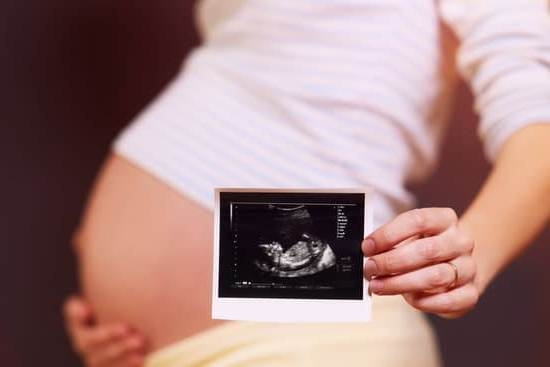How soon can a blood test detect pregnancy after implantation? This question often arises among women anxious to confirm whether they are expecting. Understanding the process of implantation and early pregnancy is crucial in determining the timing of when a blood test can accurately detect pregnancy.
Implantation marks the beginning of a pregnancy and occurs when a fertilized egg attaches itself to the lining of the uterus. This process is essential for the embryo to receive necessary nutrients and develop into a fetus. Once implantation takes place, the body begins producing hCG (human chorionic gonadotropin), a hormone that is typically detected in pregnancy tests.
The window between implantation and when hCG levels are high enough to be picked up by a blood test can vary from woman to woman. Factors like individual hormone levels and implantation timing play a role in when pregnancy can be confirmed through a blood test. Understanding these factors and how they affect the accuracy of pregnancy testing is important for those eagerly awaiting results.
What Happens During Implantation?
During implantation, the fertilized egg attaches itself to the lining of the uterus, which typically occurs around 6-12 days after conception. This process is crucial for a successful pregnancy as it signals the beginning of embryo development. Implantation can sometimes cause slight cramping or spotting, which may be mistaken for an early period. However, this occurrence is a positive sign of pregnancy and should not be a cause for concern.
Implantation Process
The fertilized egg travels through the fallopian tube and reaches the uterus where it implants itself into the uterine lining. Once implanted, the egg starts to release hormones that signal to the body that pregnancy has begun. This process triggers further changes in the body such as increased production of progesterone to support the growing embryo.
Signs and Symptoms of Implantation
Some women may experience light spotting or bleeding during implantation, known as implantation bleeding. Additionally, mild cramping or lower back pain might also be felt. It is important to note that not all women will experience these symptoms, and some might mistake them for a regular menstrual cycle. However, being aware of these signs can provide insight into a possible pregnancy and prompt further evaluation through testing.
How Soon Can Implantation Occur After Conception?
Implantation is a crucial step in the process of pregnancy, where the fertilized egg attaches itself to the lining of the uterus. This occurs typically around 6-12 days after ovulation and fertilization, although it can vary from woman to woman. Understanding the timing of implantation is essential for those trying to conceive or seeking confirmation of pregnancy through tests.
Factors Affecting Timing of Implantation
Several factors can influence when implantation occurs after conception. One significant factor is the length of a woman’s menstrual cycle, as ovulation and subsequent implantation are dependent on this timeframe. Additionally, the health and age of the woman, as well as any hormonal imbalances, can impact the timing of implantation.
Signs and Symptoms Post-Implantation
After implantation occurs, some women may experience light spotting or cramping known as implantation bleeding – although not all women will have this symptom. Other early signs of pregnancy after implantation may include breast tenderness, fatigue, and heightened sense of smell. These symptoms typically occur before a missed period but can vary from person to person.
It’s important to note that while there are physical signs that may indicate pregnancy post-implantation, they are not definitive proof. The most accurate way to confirm pregnancy during this early stage is through a blood test or urine test designed to detect human chorionic gonadotropin (hCG) levels in the body.
Different Types of Pregnancy Tests Available
When it comes to confirming a suspected pregnancy, there are several types of pregnancy tests available, each with its own pros and cons. The most common types include urine tests and blood tests. While urine tests are easily accessible over-the-counter at pharmacies and can be done in the comfort of your own home, blood tests are typically performed in a healthcare setting by a medical professional.
One of the main differences between urine tests and blood tests is how soon they can detect pregnancy after implantation. Urine tests are generally recommended to be taken at least a day after a missed period, as the levels of human chorionic gonadotropin (hCG), the hormone produced during pregnancy, may not be detectable earlier.
On the other hand, blood tests can detect hCG levels much sooner than urine tests, often as early as 6-8 days after ovulation or about 7-10 days after implantation.
To understand how soon a blood test can detect pregnancy after implantation, it’s crucial to consider the different types of blood tests available: qualitative hCG blood tests and quantitative hCG blood tests. Qualitative blood tests simply confirm whether hCG is present in the bloodstream, providing a straightforward yes or no answer regarding pregnancy.
Quantitative blood tests measure the exact amount of hCG present in the blood, which can help determine how far along a pregnancy is or identify potential complications.
How Does a Blood Test Detect Pregnancy After Implantation?
The process of detecting pregnancy after implantation through a blood test involves measuring the levels of human chorionic gonadotropin (hCG) in the blood. hCG is a hormone produced by the placenta shortly after implantation occurs.
An hCG blood test is able to detect very low levels of this hormone in the blood, making it an accurate method for confirming pregnancy, especially in the early stages. The presence and levels of hCG in the blood can indicate whether implantation has successfully occurred and pregnancy has begun.
One crucial aspect that women often wonder about is how soon a blood test can detect pregnancy after implantation. Generally, it is recommended to wait at least 7-12 days after conception before taking a blood test to allow hCG levels to rise to a detectable range.
However, some sensitive tests may be able to detect hCG levels earlier, even around 6-8 days post-conception. It is important to note that individual women may have different rates of hCG production, so accurate timing can vary from person to person.
In comparison to urine pregnancy tests which measure hCG levels through urine samples, blood tests are typically more sensitive and can detect lower levels of hCG earlier on in pregnancy. This makes them more reliable for detecting pregnancy soon after implantation.
Additionally, blood tests conducted by healthcare professionals in clinical settings tend to be more accurate than over-the-counter urine tests. If you suspect you might be pregnant and are looking for early confirmation, consulting with your healthcare provider about scheduling a blood test could provide you with timely and accurate results.
| Aspect | Information |
|---|---|
| Timing of Blood Test | Recommended to wait 7-12 days post-conception |
| Early Detection | Blood tests may detect hCG as early as 6-8 days post-conception |
| Comparison to Urine Tests | Blood tests are more sensitive and accurate than urine tests |
Accuracy of Blood Tests vs Urine Tests
Blood tests for pregnancy are known to be more accurate and sensitive than urine tests due to their ability to detect lower levels of the pregnancy hormone hCG. After implantation occurs, it typically takes about 7-12 days for hCG levels to be detectable in the blood. This means that a blood test can potentially detect pregnancy as soon as 7-12 days after implantation has taken place.
The accuracy of blood tests in detecting pregnancy after implantation is usually very high, with most tests claiming an accuracy rate of over 99%. This high level of accuracy is due to the fact that blood tests measure the exact amount of hCG present in the blood, whereas urine tests may vary depending on factors such as urine concentration and time of day.
Therefore, if you are looking for a reliable and early detection method, a blood test is often recommended.
It is important to note that while blood tests are more sensitive than urine tests, they are also typically more expensive and require a visit to a healthcare provider. However, if you want to know how soon you can detect pregnancy after implantation with the highest level of accuracy, a blood test is your best option. If you suspect you may be pregnant and have recently experienced implantation symptoms, consider scheduling a blood test to confirm your suspicions.
Factors Affecting the Timing of Detection
When it comes to detecting pregnancy after implantation, timing can vary depending on several factors. Understanding these factors can help individuals manage their expectations and make informed decisions about when to take a blood test for pregnancy. Here are some key factors that can affect the timing of detection:
1. Sensitivity of the Test: The sensitivity of the pregnancy test plays a crucial role in how soon it can detect pregnancy after implantation. Some tests are designed to detect lower levels of hCG (the pregnancy hormone) in the blood earlier than others. It is important to choose a test with high sensitivity for early detection.
2. Timing of Implantation: The timing of implantation itself can impact when a blood test will be able to detect a pregnancy. Implantation typically occurs about 6-12 days after ovulation, but this timeline can vary from person to person. In some cases, implantation may occur earlier or later, affecting the window for detection.
3. hCG Levels: Human Chorionic Gonadotropin (hCG) is the hormone produced by the placenta during pregnancy. The levels of hCG increase rapidly in the early stages of pregnancy, doubling approximately every 48-72 hours. The timing of implantation and subsequent hCG production can influence when a blood test will accurately detect pregnancy.
Overall, while some blood tests may be able to detect pregnancy as early as 7-10 days after conception, it is recommended to wait until closer to the expected start of your period for more reliable results. Consulting with a healthcare provider can also provide guidance on when is the best time to take a blood test for pregnancy after implantation.
Tips for Taking a Blood Test for Pregnancy After Implantation
When it comes to taking a blood test for pregnancy after implantation, there are several tips to keep in mind to ensure accurate results. Here are some important guidelines to follow:
1. Choose the right timing: It is crucial to wait at least 7-12 days after ovulation or when implantation is most likely to have occurred before getting a blood test for pregnancy. Testing too early can result in false negatives due to low levels of hCG hormones.
2. Consult with your healthcare provider: Before scheduling a blood test for pregnancy, it is advisable to consult with your healthcare provider. They can provide guidance on the best timing for testing based on your individual menstrual cycle and fertility history.
3. Follow instructions carefully: Make sure to follow any specific instructions provided by the laboratory or clinic where you are getting the blood test. This may include fasting before the test or avoiding certain medications that could interfere with the results.
Overall, taking a blood test for pregnancy after implantation can be a reliable way to confirm early pregnancy. By following these tips and working closely with your healthcare provider, you can increase the likelihood of obtaining accurate results that will help you prepare for the next steps in your journey to motherhood.
Conclusion
In conclusion, the timing and accuracy of pregnancy testing, particularly through a blood test after implantation, are crucial factors in confirming a pregnancy. Understanding the process of implantation and how soon it can occur after conception is essential for women who are trying to conceive or suspect they may be pregnant. A blood test is generally able to detect pregnancy earlier than a urine test, as it can detect lower levels of the hormone hCG that indicate pregnancy.
It is recommended to wait at least 7-12 days after ovulation before taking a blood test for pregnancy, as this allows for sufficient time for implantation to occur and hCG levels to rise to detectable levels. Factors such as the sensitivity of the test, the timing of ovulation, and individual variations in hCG production can also affect when a blood test can accurately detect pregnancy after implantation.
It is important to follow the instructions provided with the test and consult with a healthcare provider if there are any uncertainties.
Overall, being mindful of the timing of testing and choosing a reliable method such as a blood test can help ensure accurate results when determining pregnancy after implantation. By understanding the process and factors involved in pregnancy detection, individuals can make informed decisions about their reproductive health and take appropriate steps towards prenatal care.
Frequently Asked Questions
How Soon After Implantation Will a Blood Test Show Positive?
A blood test can typically show a positive result around 7-12 days after implantation occurs. This is usually earlier than a urine pregnancy test can detect the hCG hormone.
How Long After Implantation Does hCG Rise in Blood?
After implantation, it takes about 2-3 days for hCG levels to be detectable in the blood. The levels of hCG then double approximately every 48-72 hours during early pregnancy.
How Soon Can a Blood Test Detect Pregnancy Before Missed Period?
A blood test can generally detect pregnancy about 6-8 days before a missed period. This early detection is possible because blood tests are more sensitive to detecting low levels of hCG in the body compared to urine tests.

Welcome to my fertility blog. This is a space where I will be sharing my experiences as I navigate through the world of fertility treatments, as well as provide information and resources about fertility and pregnancy.





